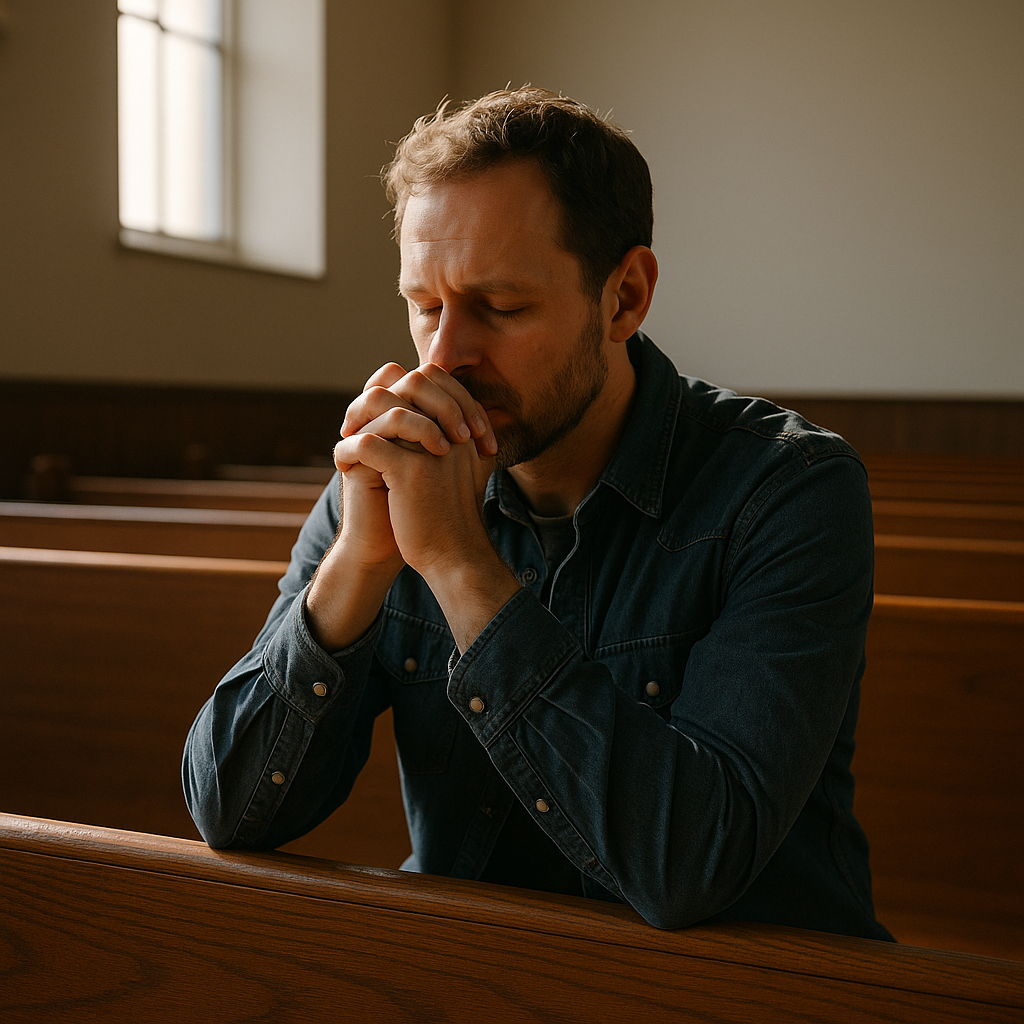Becoming Friends with Waiting: A Practice of Prayer and Presence
Have you ever felt as though you were in a dry land, or that all your prayers were falling flat?
You’ve asked, pleaded, and begged for answers, yet you’re met with silence. It’s a feeling familiar to every Christian. Often, silence makes us feel isolated because we don’t know how to embrace it. We live in a loud world, so we assume that when God speaks, He must speak loudly—with signs and wonders, right?
Jesus’ life actually shows us something different. His life reveals a way of silence and anticipatory waiting. He often withdrew to quiet places, retreating into stillness and away from the noise of daily life. Even at the height of His ministry, in the Garden of Gethsemane, He went to pray with two of His followers. This is one of the most intimate glimpses we have into His prayer life. He prayed, “My Father, if possible, let this cup pass from me; nevertheless, not as I will, but as You will.”
We know how that prayer was answered. But as Jesus felt the full weight of being human, I wonder how that ache pressed upon Him as He prayed. I imagine a deep, heavy silence until He knew that His prayer would not be answered in the way He had hoped.
The life of Jesus shows us what waiting looks like—and why we need to make friends with the waiting. The psalms move our hearts in this direction. The psalmist writes:
“I wait for the Lord, my soul waits,
and in His word I hope;
my soul waits for the Lord
more than watchmen for the morning,
more than watchmen for the morning.” (Psalm 130)
Waiting for the Lord precedes anticipation. It draws our circumstantial wants aside until all that’s left is a longing to be present with Him. Even in our deepest desires, there’s something more they point to—and that’s what the Lord is after. Some longings can only be found in the silence.
Waiting in Prayer
Waiting is a natural part of the human experience—one we’ve tried to minimize through technology. There’s not much we have to wait for these days: food is fast, messages are instant, and lines are short. If we’re honest, the little time we do spend waiting is often filled by our phones.
But there’s a greater invitation: to wait for the Lord.
John Ortberg writes, “Biblically, waiting is not something we have to do until we get what we want. Waiting is a part of the process of becoming what God wants us to be.” Prayer can be that place where we learn to become friends with waiting.
Trying to Wait
Find a quiet space to listen. When it’s over, jot down your thoughts.
If you’re waiting in a line or drive-through, turn the music off, put your phone away, take a few deep breaths, and pray a simple breath prayer: “Jesus, I invite You here” or “Here I am.”
Try to do things more slowly.
Walk slower.
Drive in the slow lane.
Don’t switch grocery lines just because another looks faster.
Read poetry.
These practices won’t necessarily answer your unanswered prayers or resolve your deepest longings. I’m quite sure of that. But in doing them, you’ll begin to learn the way of Jesus—a slower way. A way that creates margin for crisis and interruption.
The best things in life come at the cost of waiting. And in return, we learn to be present—with each other and with God. That presence leads to security and joy. Even as we wait, we can find joy there.
Matthew
Psalm 130
John Ortberg, God Is Closer Than You Think: This Can Be the Greatest Moment of Your Life Because This Is the Place Where You Can Meet God. Grand Rapids: Zondervan, 2009.
